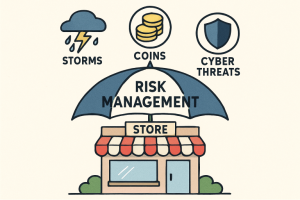In Eastern Europe, Romania stands tall as one of the important players in software development. With a rising tech ecosystem, highly qualified professionals, and a cost-effective workforce, developers in Romania are penetrating the European market significantly. This write-up discusses the plans that have pushed Romanian developers to the front, optimizing budgets without harming product quality.
The Romanian IT Landscape: A Snapshot
Romania’s IT sector has grown over the past ten years. By 2024, more than 202,000 software developers will be in the country, a big jump from before. Important tech centers like Bucharest, Cluj-Napoca, and Iasi have turned into focal points of new ideas and progress. This fast growth can be linked to several reasons:
- Academic Quality: Romania has 49 state and eight private universities, with institutions like Babes-Bolyai University and the University of Bucharest among the best. These schools continuously churn out IT graduates; more than 9,300 graduated in 2021 alone, and this has increased by 65% since 2015.
- Wide Range of Skills: Romanian developers show excellent skills in all programming languages, such as JavaScript, Java, C++, and Python. This ability allows them to meet all project needs, from enterprise solutions to mobile apps.
- Language Skills: Due to strong multilingual education, many Romanian IT specialists speak English and other European languages fluently, making communication with international clients easy.
- Government Backing & Investment: The Romanian administration has rolled out several incentives toward supporting the IT sector; tax exemptions for IT specialists and funding for research & development projects.
Strategies for Budget Optimization Without Quality Compromise
European companies are increasingly turning to Romanian developers to balance cost and quality. Several strategies have been instrumental in this optimization:
1. Leveraging Competitive Labor Costs
Romania has a good price-quality ratio. The developers in Romania charge 20% to 50% less than what Western Europe or North America charges. This cost advantage arises from the lower living costs and the nice tax policies in Romania. Even at these lower rates, the quality of services does not suffer, thus permitting better resource allocation by companies.
2. Embracing Agile Methodologies
Romanian development teams usually use agile methodologies. These methodologies foster iterative product development, continuous feedback, and flexibility in changing requirements. They also ensure that projects are developed per the client’s expectations; thus, costly revisions are avoided, and deliveries are made on time.
3. Investing in Continuous Learning and Development
Continuous education places Romanian developers at the forefront of technological novelties. Companies will benefit from this up-to-date knowledge without bearing the extra costs of training, leading to innovative solutions and efficient problem-solving.
4. Utilizing Nearshore Outsourcing Models
Romania’s strategic location in Eastern Europe offers a nearshore advantage for many European companies. The minimal time zone differences facilitate real-time collaboration, reducing delays and enhancing productivity. This proximity also allows for occasional in-person meetings without significant travel expenses.
5. Fostering Strong Communication Channels
Effective communication is pivotal in outsourcing relationships. Romanian teams prioritize transparent and regular communication, utilizing tools and practices that keep clients informed and engaged throughout development. This clarity prevents misunderstandings that could lead to costly errors.
The Role of IT Companies in Romania’s Success
Romania’s IT ecosystem is about the talented workforce and the presence of internationally acclaimed IT companies. N-iX is one of the few companies significantly contributing to the outsourcing landscape. Utilizing Romania’s fantastic talent pool, they have traditionally been offering high-quality software development services to enterprises all over the globe.
Its business expansion into Romania emphasizes the country’s strategic importance in the European IT market. Through its deals with Romanian developers, N-iX has proved that cost-effective outsourcing does not mean compromising on quality; rather, it is an intelligently planned approach to harnessing more efficiency while maintaining high-tier technical expertise.
Emerging Trends in Romania’s IT Industry
As Romania cements its place in the European IT landscape, several trends are shaping the future of its software development sector:
1. The Rise of AI and Machine Learning Expertise
More Romanian developers specialize in AI, machine learning, and data science. This shift positions Romania as a key player in cutting-edge technological advancements, attracting global clients seeking expertise in these areas.
2. Growth of IT Hubs Beyond Bucharest
While Bucharest is the biggest tech center, cities like Cluj-Napoca, Iasi, and Timisoara are becoming important IT spots. These places have lower costs and fresh talent available, making them appealing for IT projects.
3. Increased Focus on Cybersecurity
As cyber threats grow, Romanian developers are focusing on cybersecurity skills. Firms are aggressively educating experts to meet worldwide security standards and strengthen their software solutions against possible cyberattacks.
4. Expansion of Remote Work and Hybrid Models
The COVID-19 pandemic accelerated the adoption of remote work. Many Romanian IT firms have embraced hybrid models, allowing developers to work flexibly while maintaining productivity. This shift has further enhanced Romania’s appeal as a prime outsourcing destination.
The Road Ahead: Sustaining Growth and Quality
As Romanian developers continue to progress across Europe, this growth can only be sustained through concerted action from within the industry and across the schools. Investments in advanced training programs, innovation culture, and favorable business policies will be prime ingredients. Also, firms that want to work with Romanian developers should concentrate more on long-term partnerships.
Conclusion
Romania owes its position to sparkling European software development scenes to the skilled workforce, strategic advantages, and commitment to quality that has characterized this country. It has become a talent-tech hub with competitive pricing and well-trained professionals. Universities in Romania and specialized programs in IT fields constantly produce developers ready to take on complex challenges and deliver results. In addition, continuous professional development helps keep the technological industry in Romania at the cutting edge.
Romanian developers positioned themselves as partners who could offer European companies budget optimization without quality compromise. The other advantage is that Romania is located favorably within Europe in terms of time zones with Western European countries for easy communication and collaboration. There are also cultural similarities between Romania and many European countries; working together becomes very simple. In good times and bad, as the digital scene keeps changing, the link between European businesses and tech workers from Romania ensures new ideas, smartness, and win—both for them and necessary. Romania’s more significant role in making software shows the land’s skill to mix old ways with new thoughts, making it a top spot in the world’s tech system.











